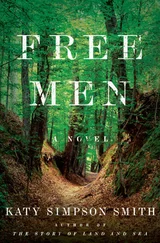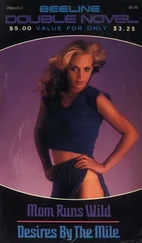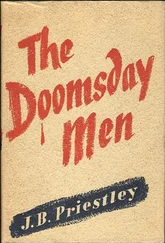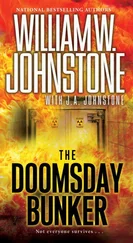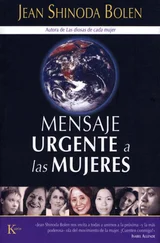Smith, Alice Kimball, ‘The Elusive Dr Szilard’, Harper’s Magazine , 221 (July 1960), 77–86.
Smith, David C., H. G. Wells: Desperately Mortal (New Haven: Yale University Press, 1986).
—— ‘H. G. Wells and his Contemporary Critics: A Developing Reputation’, Cahiers Victoriens et Edouardiens , 46 (Oct. 1997), 213–44.
Smith, P. D., ‘German Literature and the Scientific World-View in the Nineteenth and Twentieth Centuries’, Journal of European Studies , 27 (1997), 389–415.
—— ‘Science and the City: Alfred Döblin’s Berlin Alexanderplatz ’, London Magazine , 39 (Apr./May 2000), 27–36.
—— Metaphor and Materiality: German Literature and the World-View of Science 1780–1955 (Oxford: European Humanities Research Centre, 2000).
—— ‘Scientific Themes in Goethe’s Faust ’, in Paul Bishop, ed., A Companion to Goethe’s Faust (Rochester, NY: Camden House, 2001), 194–220.
—— ‘Elective Affinity? A Tale of Two Cultures’, Prometheus , 4 (2001), 46–65.
—— Einstein (London: Haus Publishing, 2003).
Smyth, Henry DeWolf, ‘The Stockpiling and Rationing of Scientific Manpower’, BAS , 7 (Feb. 1951), 38–42.
Snow, C. P., ‘A New Means of Destruction?’, Discovery , ns 2, no. 18 (Sep. 1939), 443–4.
—— The Physicists (London: Macmillan, 1981).
Soddy, Frederick, ‘Some Recent Advances in Radioactivity’, Contemporary Review , 83 (May 1903), 708–20.
—— ‘The Energy of Radium’, Harper’s Magazine , 120 (Dec. 1909), 52–9.
—— The Interpretation of Radium: Being the Substance of Six Free Popular Experimental Lectures Delivered at the University of Glasgow (London: John Murray, 1912; 1st edn 1909).
Sontag, Susan, ‘The Imagination of Disaster’, in Against Interpretation and Other Essays (New York: Anchor, 1990; 1st edn 1965), 209–25.
Spiers, Edward M., Chemical Warfare (London: Macmillan, 1986).
Stableford, Brian, Scientific Romance in Britain 1890–1950 (New York: St Martin’s, 1985).
Stachel, John, ed., Einstein’s Miraculous Year: Five Papers That Changed the Face of Physics (Princeton University Press, 1998).
Stein, Jonathan B., From H-Bomb to Star Wars: The Politics of Strategic Decision Making (Lexington, Mass.: Lexington Books, 1984).
Stern, Fritz, Einstein’s German World (London: Allen Lane, 2000).
Stoltzenberg, Dietrich, Fritz Haber: Chemist, Nobel Laureate, German, Jew (Philadelphia: Chemical Heritage, 2004).
Stone, Albert E., Literary Aftershocks: American Writers, Readers, and the Bomb (New York: Twayne, 1994).
Strauss, Lewis L., Men and Decisions (London: Macmillan, 1963).
Strutt, R. J., ‘Radium: Its Properties and Possibilities’, National Review , 44 (1904/5), 68–77.
Stuewer, Roger H., ed., Nuclear Physics in Retrospect: Proceedings of a Symposium on the 1930s (Minneapolis: University of Minnesota Press, 1979).
Stuhlinger, Ernst and Ordway, FrederickI., III, Wernher von Braun: Crusader for Space (Malabar: Krieger, 1996).
Swinton, Col. E. D., ‘The “Tanks’ ”, Strand Magazine 54 (1917), 270–77.
Szasz, Ferenc Morton, British Scientists and the Manhattan Project: The Los Alamos Years (Basingstoke: Macmillan, 1992).
Szilard, Leo, ‘We Turned the Switch’, Nation , 161 (22 Dec. 1945), 718–19.
—— ‘The Physicist Invades Politics’, Saturday Review of Literature , 30 (3 May 1947), 7–8, 31–4.
—— ‘Can We Have International Control of Atomic Energy?’, BAS , 6 (Jan. 1950), 9–12, 16.
—— Collected works in 3 vols (Cambridge, Mass.: MIT Press):
Vol 1: Bernard T. Feld and Gertrude Weiss Szilard, eds., The Collected Works of Leo Szilard: Scientific Papers (1972) [cited in the Notes as CW1 ].
Vol 2: Spencer R. Weart and Gertrud Weiss Szilard, eds., Leo Szilard: His Version of the Facts – Selected Recollections and Correspondence (1978) [ CW2 ].
Vol 3: Helen S. Hawkins, G. Allen Greb and Gertrud Weiss Szilard, eds., Toward a Livable World: Leo Szilard and the Crusade for Nuclear Arms Control (1987) [ CW3 ].
Szöllösi-Janze, Margit, Fritz Haber, 1868–1934: Eine Biographie (Munich: Beck, 1998).
Taylor, Frederick, Dresden: Tuesday 13 February 1945 (London: Bloomsbury, 2004).
Telegdi, Valentine L., ‘Szilard as Inventor: Accelerators and More’, Physics Today , 53 (Oct. 2000), 25–8.
Teller, Edward, ‘Backto the Laboratories’, BAS , 6 (Mar. 1950), 71–2.
—— Energy from Heaven and Earth (San Francisco: W. H. Freeman, 1979).
—— with Brown, Allen, The Legacy of Hiroshima (New York: Doubleday, 1962).
—— and Latter, Albert L., Our Nuclear Future: Facts, Dangers and Opportunities (New York: Criterion, 1958).
—— with Shoolery, Judith, Memoirs: A Twentieth-Century Journey in Science and Politics (Cambridge, Mass.: Perseus, 2001).
Thomas, G. Holt, ‘When Shall We Travel by Flying Trains?’, Strand Magazine , 55, no. 325 (Jan. 1918), 50–58.
Thomas, Gordon and Morgan-Witts, Max, Ruin from the Air: The Atomic Mission to Hiroshima (London: Sphere, 1982).
Thompson, Damian, The End of Time: Faith and Fear in the Shadow of the Millennium (London: Sinclair-Stevenson, 1996).
Tornabene, Lyn, ‘Contradicting the Hollywood Image’, Saturday Review , 46 (28 Dec. 1963), 19–21.
Toumey, Christopher P., ‘The Moral Character of Mad Scientists: A Cultural Critique of Science’, Science, Technology and Human Values , 17, no. 4 (1992), 411–37.
Townshend, Charles, ed., The Oxford History of Modern War (Oxford University Press, 2000).
Traschen, Isadore, ‘Modern Literature and Science’, College English , 25 (Jan. 1964), 248–55.
Travers, T. H. E., ‘Future Warfare: H. G. Wells and British Military Theory 1895–1916’, in Louis A. Knafla, Martin S. Staum and T. H. E. Travers, eds., Science, Technology, and Culture in Historical Perspective (University of Calgary Press, 1976), 144–72.
Trenn, Thaddeus J., ‘The Central Role of Energy in Soddy’s Holistic and Critical Approach to Nuclear Science, Economics, and Social Responsibility’, British Journal for the History of Science , 12, no. 42 (1979), 261–76.
Trowbridge, John, ‘What are X-rays?’, Century Illustrated , 56, ns 34 (May 1898), 128–32.
Trumpener, Ulrich, ‘The Road to Ypres: The Beginnings of Gas Warfare in World War I’, Journal of Modern History , 47 (Sep. 1975), 460–80.
Tsutsui, William, Godzilla on My Mind: Fifty Years of the King of Monsters (New York: Palgrave Macmillan, 2004).
Turney, Jon, Frankenstein’s Footsteps: Science, Genetics and Popular Culture (New Haven: Yale University Press, 1998).
Ulam, S. M., Adventures of a Mathematician (Berkeley: University of California Press, 1991; 1st edn 1976).
Vogt, Erich, ‘Eugene Paul Wigner: a towering figure of modern physics’, Physics Today 48, no 12 (Dec. 1995).
Volkman, Ernest, Science Goes to War: The Search for the Ultimate Weapon, from Greek Fire to Star Wars (New York: Wiley, 2002).
‘W.L.R.’, ‘The World-Republic’, Academy , 86 (16 May 1914), 616–17.
Wagar, W. Warren, Terminal Visions: The Literature of Last Things (Bloomington: Indiana University Press, 1982).
Читать дальше

